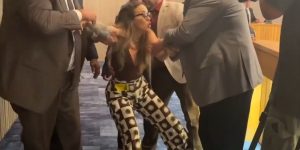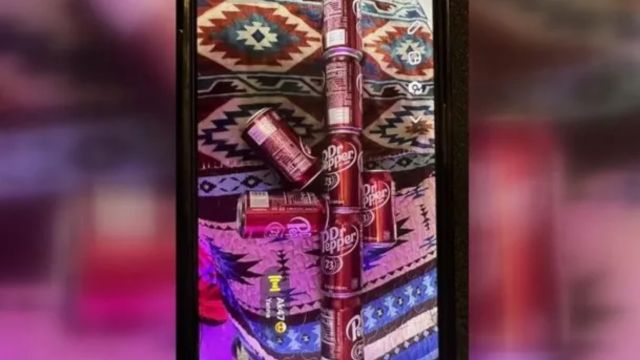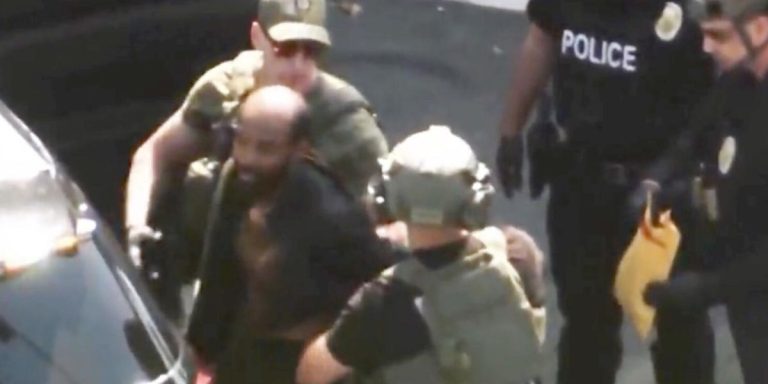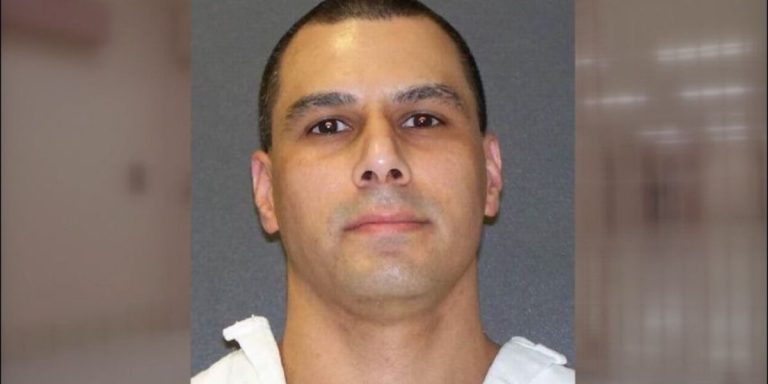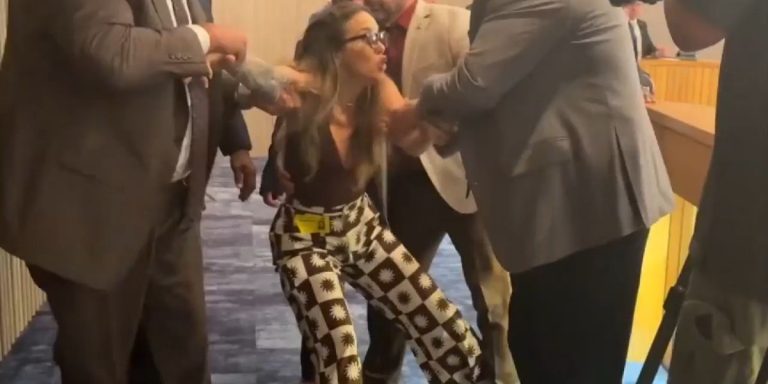A mother is suing a Missouri school for suspending her 13-year-old son after he organised cans of Dr. Pepper into the shape of a weapon and shared a photo of the arrangement on Snapchat.
“This is unconscionable—my son never hurt or threatened a single person,” Riley Grunden, the student’s mother, said in a statement released by the Goldwater Institute, which represents the 13-year-old.
“Instead of using common sense, our own school district treated my child like a criminal for arranging empty soda cans in a way they didn’t like,” Grunden told me. “What happened to his First Amendment rights?”
W.G. shared a Snapchat shot of the Dr. Pepper cans with audio labelled “Ak47” with a musical beat and a voiceover saying, “This is the famous AK47, with over 50 million manufactured in ten countries, the AK47 is the most popular assault rifle in the world.”
Following the post, which was made outside of school grounds, W.G.’s belongings were searched on September 16, 2024, and he was suspended for three days by the Mountain View-Birch Tree R-III School District. Grunden met with the superintendent and the principal on September 17, 2024.
The school allegedly issued a permanent entry on his school record that he had taken part in “cyberbullying.”
Lanna Tharp, superintendent of the Mountain View-Birch Tree R-III School District, told Fox News Digital, “The School District is aware of the complaint that was recently filed. Unfortunately, because the litigation concerns a student, we are very limited in what we can legally publish publicly. For the time being, we can only confirm that we have legal counsel who will give our side of the story and defend against these charges.
On April 10, 2025, the Goldwater Institute filed a lawsuit, arguing that the Mountain View-Birch Tree R-III School District and school administrators misread W.G.’s post “in order to justify punishing him for creative expression protected by the First Amendment.”
According to the Goldwater Institute, the United States Supreme Court’s 2021 ruling in Mahanoy Area School District v. B.L. limits schools’ ability to control off-campus speech.
They also highlight the Missouri Constitution’s free speech protections in Article I, Section 8, which gives a Missourian the right to “communicate whatever he will on any subject,” which the Institute says makes “clear that creative expression like this soda can art project falls squarely within protected activity,” in an April 15, 2025, post about the lawsuit.
According to the lawsuit, Tharp allegedly stated, “We have enough information to believe the video has caused fear in at least one student, which is understandable.” The safety and well-being of our students is our first priority, and we acted quickly to resolve the concerns.”
This is despite Tharp apparently adding, “We would like to inform you that we have become aware of a rumour circulating on social media regarding a potential danger. Following a thorough review, we discovered no credible evidence of any threat.”
The lawsuit seeks to clear W.G.’s record and prevent the school from pursuing further punishment against the student in relation to the Dr. Pepper cans photo. It also wants the court to rule the school district’s conduct unconstitutional.
Dave Roland, director of litigation and co-founder of the Freedom Centre of Missouri, told Fox News Digital that the Goldwater Institute is “pursuing this case to turn the tide against a troubling national wave of schools overreaching their proper authority when it comes to policing and punishing off-campus student expression.”
Dave Roland, director of litigation and co-founder of the Freedom Centre of Missouri, along with Marc Ellinger and Stephanie Bell, partners at the Missouri-based company Ellinger Bell, are representing W.G.
“From students suspended for posting memes to punishments for fictional creative writing, schools are increasingly treating ordinary adolescent communication as grounds for disciplinary action,” Roland pointed out. “The consequences extend far beyond individual cases – each unjust punishment sends a message to all students that their constitutional rights disappear the moment they log onto social media.”

